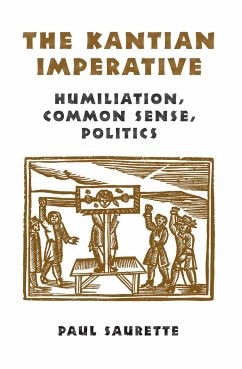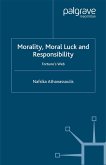Immanuel Kant's moral philosophy is almost universally understood at the attempt to analyse and defend a morality based on individual autonomy. In The Kantian Imperative, Paul Saurette challenges this interpretation by arguing that Kant's 'imperative' is actually based on a problematic appeal to 'common sense' and that it is premised on, and seeks to further cultivate and intensify, the feeling of humiliation in every moral subject. Discerning the influence of this model on a wide variety of historical and contemporary political thought and philosophy and critical of its implications, Saurette explores its impact on the work of two seminal and contemporary thinkers in particular: Charles Taylor and Jurgen Habermas. Saurette also shows that an analysis of the Kantian imperative allows a better understanding of current political problems such as the U.S. torture scandal as Abu Ghraib in Iraq and broader post-9/11 U.S. foreign policy. The Kantian Imperative thus demonstrates that philosophy and political theory a are as relevant to contemporary events as at any other time in history.
Hinweis: Dieser Artikel kann nur an eine deutsche Lieferadresse ausgeliefert werden.
Hinweis: Dieser Artikel kann nur an eine deutsche Lieferadresse ausgeliefert werden.
With this fresh and provocative new work, Paul Saurette presents a minority view of Kant that has few antecedents. His re-reading of Kant's moral philosophy as a species of ethical cultivation - deeply indebted to an ascetics of humiliation - is innovative, challenging, and very well executed. This is a major contribution to research.' Ian Hunter, Centre for the History of European Discourses, University of Queensland The Kantian Imperative is a first-rate book: thoughtful, distinctive, provocative, engaging, eye-opening, even disturbing. It is one of those rare books where a reader can say, I wish I'd written it. With great insight and an elegant prose style, Paul Saurette has unearthed problematic dimensions of Kant's thought that demand serious attention.' Steven Johnston, Department of Government and International Affairs, University of South Florida








